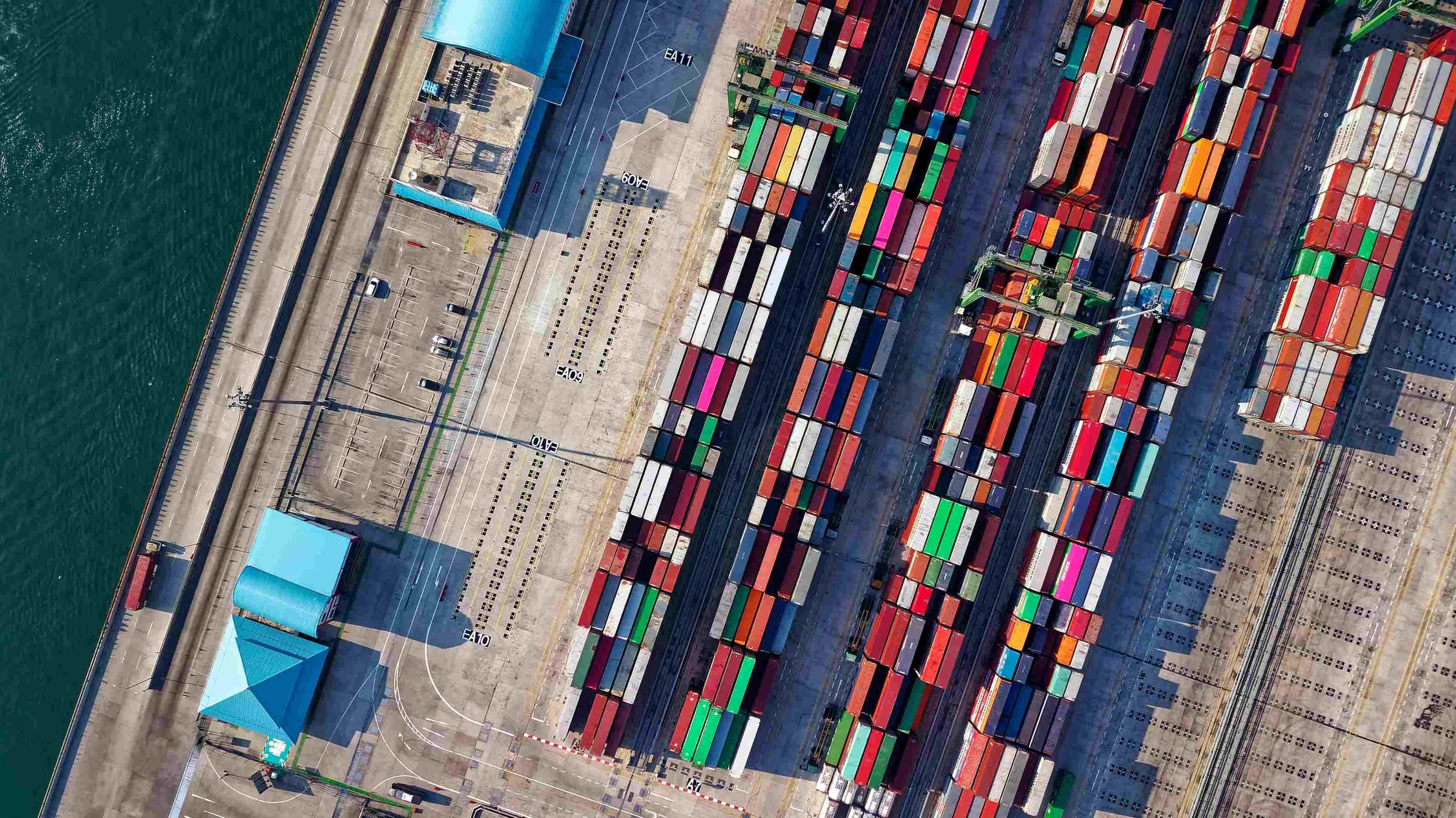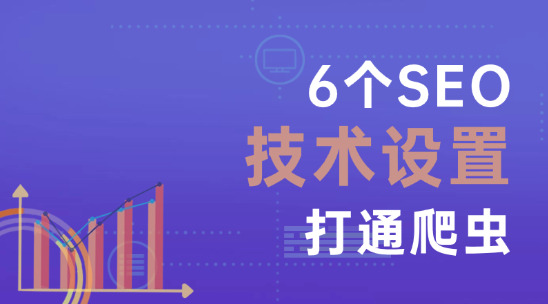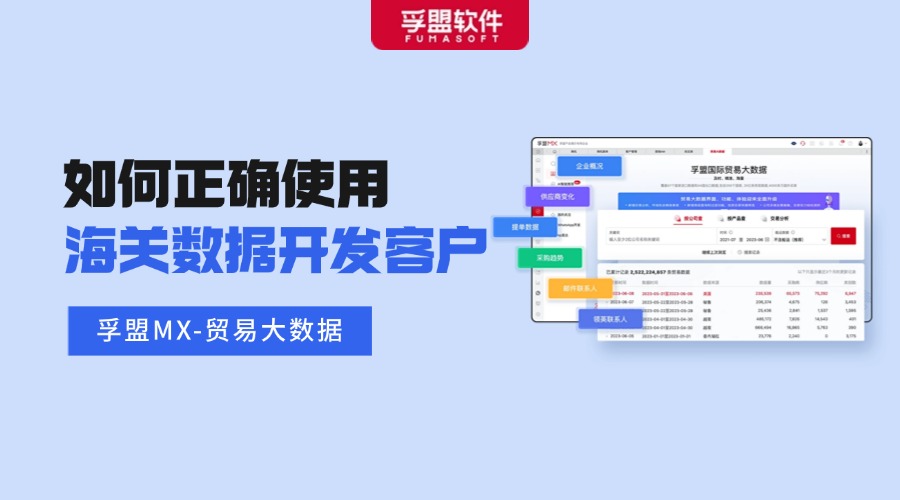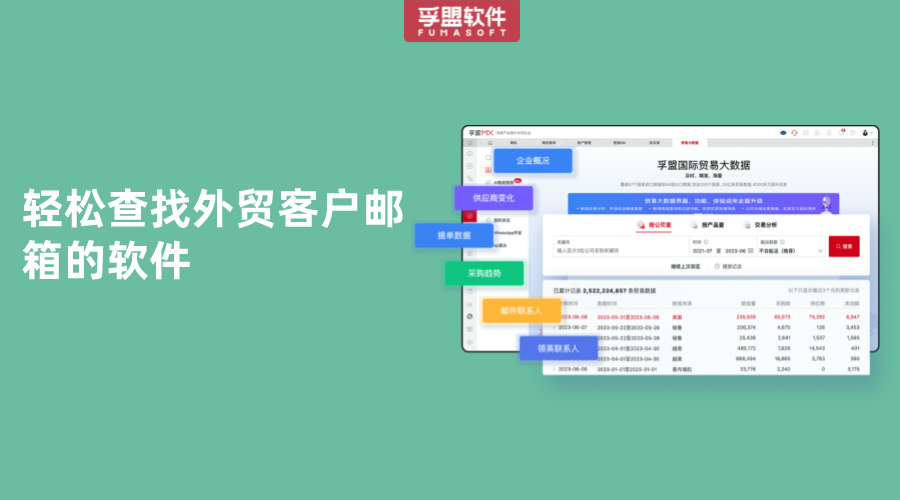 首页
>
新闻资讯
>
外贸干货
>
RCEP下周生效,将加速域内“微型跨国企业”崛起
首页
>
新闻资讯
>
外贸干货
>
RCEP下周生效,将加速域内“微型跨国企业”崛起
RCEP下周生效,将加速域内“微型跨国企业”崛起

2020年全球新冠肺炎疫情暴发以来,谁在满足全球买家层出不穷的新需求?
“一个速溶于水的环保狗狗粪便袋,我们卖爆了英国、德国、法国、意大利、西班牙和美国”; “我们在Tiktok上的‘粉丝’过亿,产品除了销往欧美日外,也进入了东南亚市场”;“10年前我学的外贸专业很热门,毕业后进外贸公司又要抢破头,但现在,跨境电商比外贸公司火多了,当年没进外贸公司的我,现在反而成了学弟学妹们口中的成功师兄”……
说这些话的,并不是传统跨国企业的首席执行官,而是来自珠三角、长三角甚至内陆省市的80后、90后外贸人,他们白手起家打造的,或许是全世界最微小的跨国企业。
“未来3年仍是数字贸易的发展黄金期。在亚洲范围,大量微型跨国企业正快速崛起,他们不仅把生意做到万里之外的多个海外市场,也将成长为未来全球贸易的主力。”德勤中国区副主席林国恩如是说。
12月14日,德勤发布2021年度《科技赋能亚太数字贸易》报告,将目光聚焦在疫情中逆势上扬的全球数字贸易,详细分析了亚太数字贸易生态变化,首次勾勒出这场变革中的主角——成长中的亚洲中小跨境电商。在《区域全面经济伙伴关系协定》(RCEP)政策红利和数字技术助力下,他们正尝试关键一跃,成长为“微型跨国企业”。
RCEP破壁垒、降成本
亚太数字贸易进入强增长周期
2020年-2021年,疫情加速了消费者和商家的数字化进程,全球买家都开始习惯在线“买买买”,全球数字贸易实现快速增长。
联合国数据显示,2021年第三季度,全球商品贸易量超过5.6万亿美元,创下历史新高。其中,跨境电商更是借势起飞。据中国海关总署统计,今年前三季度,中国跨境电商进出口增长了20%,2020年其规模就达到1.7万亿元,其中出口占2/3,增长40%。
而这样的增长才刚刚开始。德勤报告指出,在技术进步、国际合作开放等诸多因素影响下,全球贸易正进入智能化升级新阶段。包括5G在内的重要数字基础设施落地,海量大数据叠加人工智能,让智能决策成为可能,帮助开启万物互联时代。技术升级会吸引越来越多的跨境电商加入数字贸易的全球产业链,以满足全球消费者日益增长的数字消费习惯,其中,亚太将成为全球数字平台建设的生力军。
与此同时,全球不同区域的政策构建也正在影响该区域的发展态势。一方面,2022年1月1日,RCEP这个惠及人口最多、全球规模最大的自贸协定即将生效,将从消除关税壁垒、建立灵活的原产地规则、促进电子商务、提升贸易便利化水平、重视中小企业和技术合作等五大方面促进区域数字贸易。另一方面,从2021年7月1日起,欧盟增值税改革正式实施,主要改革重点包括取消22欧元的增值税免征、统一远距离销售应税注册门槛、扩大“一站式”合规机制适用范围、明确电商平台增值税纳税义务。
对此,德勤报告预测,此消彼长之下,未来亚太区域内的数字贸易活动将呈对比性增强之势。技术红利叠加政策红利,未来3年亚洲的“微型跨国企业”将迎来关键一跃。
“RCEP的实施能够实实在在解决跨境电商行业目前面临的问题。”广州延讯贸易总经理李大卫表示。该公司员工不到100人,专注做家居和照明产品,主要销往美国、欧洲、日本等国家和地区。
谈及RCEP将带来的红利,李大卫举例说:“这两年日本的关税成本过高导致很多中国跨境电商卖家放弃了日本市场。如果RCEP落地能逐步实现成员国之间享有零关税,这对于跨境电商企业来说无疑是个好消息。”
根据德勤对亚太9个国家的调研,亚太跨境电商企业对RCEP的生效充满期待,特别是在简化清关手续、提高效率方面,其次是期望降低关税壁垒、降低企业本地进入门槛。
不满足于依赖大平台
七成“微型跨国企业”想自建独立站
“微型跨国企业”是个什么概念?如广州延讯贸易总经理李大卫的公司一样,员工不过百、贸易遍全球是一大特征。德勤对亚太多国600多家跨境电商企业的调研显示,85%的跨境电商都是规模不到100人的小微型企业;少到只有一两个人,却能把生意做到平均超过3个以上的海外市场。3C、家居、美妆、服饰等是“微型跨国企业”出口全球的热销尖货,欧美市场是出口的主要市场,东南亚则被公认为发展最快的新兴市场。
同时,这些“微型跨国企业”的创始人多为80后、90后,生来就是“互联网原住民”,不像老一辈外贸人受限于国际采购巨头订单,他们更擅长从全球社交网络直面和挖掘消费需求,借助“本地制造”和亚太柔性的供应链为海外年轻消费者提供直接面对消费者的营销模式(DTC)。
85后的李大卫谈起自己的职业历程时说,10年前进入跨境电商领域,那时跨境电商还是蓝海市场,10年间,公司的业务从eBay扩展到亚马逊、速卖通,而他现在最想尝试的是做独立站。
从抖音直播做到Tiktok短视频带货的95后阿祝,也对独立站“情有独钟”。“我们更愿意自建独立站,因为在亚马逊上每开一单就要缴纳15%的手续费,做独立站能把手续费控制在7%。而且做独立站相当于给自己带货、带流量,掌握的话语权更多,只需拥有充足的货源。”
目前,阿祝的团队不到20人,其中3个创始人负责研发爆款,十几个员工负责做视频创作和独立站运营。他们开了上百个视频号,服务全球1亿多“粉丝”,再把“粉丝”引流到自建的多区域外贸独立站,主打服装、宠物、家居等垂直类目。目前,其主营的质优价廉的“国货”已销售到欧洲、美国、日本等国家和地区。
德勤报告显示,当前,亚洲“微型跨国企业”64%的生意做在亚马逊,31%做在eBay,做自建站和Lazada的各有18%,14%做速卖通,13%做其他海外本地电商平台。但2021年以来的一个显著变化是:三成企业已建好专属的独立外贸网站,另外七成企业也希望能自建独立站。相比以往主要依赖亚马逊等平台,自建独立站的兴起是“微型跨国企业”自主品牌意识觉醒的标志。这不仅能免去第三方电商平台的“进场费”,避免受制于大平台的规则制约,也能更直接地面对消费者,增强“粉丝”的品牌忠诚度,使后续促活、拉新更有主动权,同时提升数字贸易数据的安全性。
RCEP域内跨境金融服务韧性强
“微型跨国企业”出海更安全可靠
尽管遭受全球新冠肺炎疫情冲击,但作为全球最大的自贸区——RCEP区域的跨境金融服务仍显示出强大的韧性。
12月14日,浙江大学和蚂蚁研究院联合推出的“RCEP区域数字贸易跨境支付服务指数”侧面印证了亚太跨境电商的资金结算通道能力在近年来的显著提升,其中“微型跨国企业”的活跃度、活力值最高。
该指数从RCEP15国区域内中小跨境电商企业视角出发,综合了参与跨境收款卖家数、交易金额、支付笔数、收款平均时长和支付币种等一系列指标,从跨境金融服务规模和服务质量两大维度来衡量行业的整体服务水平变化。
指数显示,2018年至今,RCEP区域数字贸易跨境支付服务指数4年内上涨了近2倍,年化增长率达18.55%。2020年跨境支付服务规模指数的年环比增速为53.5%,2021年的年环比增速为14.7%,两年均保持了两位数增长。其中,以支付笔数为标准衡量的支付活跃度远远领先于卖家的增长数以及交易金额的增长,在2021年第三季度同比增长25.6%,创下历史新高。
对此,浙江大学国际联合商学院院长贲圣林分析称,这说明中小卖家在增加,订单逐渐呈现碎片化、小单化特征,印证了亚洲“微型跨国企业”的崛起势头。
值得注意的是,德勤发布的2021年度《科技赋能亚太数字贸易》报告显示,目前“等船来”是行业的普遍焦虑,尤其是“集装箱热”已影响到“微型跨国企业”的送货效率,物流成本过高、清关查验困难成为当前跨境电商企业面临的最大挑战。但与此同时,在“微型跨国企业”的经营百宝箱里,由于数字技术助力跨境支付可实现零门槛、低成本、高效率,企业对跨境收款的工具较为满意。
团队仅有12个人,生产自有品牌的环保型宠物粪便袋和环保洗碗布,通过跨境电商火爆欧美市场的深圳戈锐科技联合创始人丁超是跨境收款工具的簇拥者之一。他表示:“过去做外贸回款整体周期至少要1~2个月,而如万里汇(WorldFirst)等电子支付平台提供的跨境收款服务可以做到一分钟到账,费率也是市场最低。如市面费率为0.8%,跨境收款工具可以做到0.3%。同时,万里汇还能直接支付宝到账,方便企业再去内贸批发平台进货,这样一来能缩短30%的时间成本。此外,其还能帮助企业完成欧洲多国市场的VAT消费税申缴。”
作为一名“微型跨国企业”的当家人,广州延讯贸易总经理李大卫则把跨境的数字金融服务比作外包的“数字首席财务官(CFO)”。“有了懂技术的‘数字CFO’,企业‘出海’更安全、更可靠,基本不用担心资金的安全性问题了。”
“数字科技时代,支付技术让小微企业也有机会成长为微型跨国企业,让他们以极低的门槛坐上全球数字贸易的列车,甚至和那些跨国大企业们坐到同一等车厢。”贲圣林表示。
万里汇中国负责人范简表示,“微型跨国企业”在出海的过程中需要更多政策和技术方面的支持来帮助他们更快捷、更安全地进行跨境“收付兑”,只有这样才能迅速抓住全球数字贸易商机。
“我们近期提供了网商贷、美金贷等多种服务,希望能帮助跨境电商企业在年末的节日‘消费战役’中用技术的力量帮他们‘抢筹’,缓解企业备货、发货等需求集中爆发的资金压力。伴随明年RCEP的生效,中国的‘微型跨国企业’还将迎来更大的风口。”范简说。
孚盟软件官方联系方式
全国免费热线:400-888-9800
客服在线微信

官网:https://www.fumasoft.com/
地址:上海市闵行区新镇路1399号T6栋4楼
Since the global COVID-19 outbreak in 2020, who is meeting the endless new needs of global buyers?
"An environmentally friendly bag of water-soluble dog poop that we sold in the UK, Germany, France, Italy, Spain and the US"; "We have over 100 million 'fans' on Tiktok, and our products are not only sold in Europe, America and Japan, but also in Southeast Asia." "10 years ago, the foreign trade major I studied was very popular. After graduation, I had to fight for the head of a foreign trade company. But now, cross-border e-commerce is more popular than foreign trade companies.
These are not the chief executives of traditional multinationals but the post-1980s and post-1990s traders from the Pearl River Delta, Yangtze River Delta and even inland provinces who have built from scratch perhaps the world's tiniest multinationals.
"The next three years are still the golden age for digital trade. On the Asian scale, a number of micro-multinationals are rapidly emerging, not only to do business in multiple overseas markets thousands of miles away, but also to become the future mainstay of global trade." So said David Lin, vice chairman of Deloitte China.
On December 14, Deloitte released the 2021 Report "Technology Enabling Digital Trade in Asia Pacific", which focuses on the global digital trade rising against the trend of COVID-19, analyzes the ecological changes of digital trade in Asia Pacific in detail, and Outlines for the first time the leading role in this change -- the growing small and medium-sized cross-border e-commerce enterprises in Asia. With the policy dividends of the Regional Comprehensive Economic Partnership (RCEP) and digital technology, they are attempting the crucial leap to become "micro-multinationals".
RCEP has broken down barriers and reduced costs
Asia-pacific digital trade has entered a strong growth cycle
In 2020-2021, the epidemic accelerated the digitization process of consumers and businesses, and global buyers became accustomed to online "buy, buy, buy", resulting in rapid growth of global digital trade.
Global trade in goods reached a record high of more than $5.6 trillion in the third quarter of 2021, according to the United Nations. Among them, cross-border e-commerce is taking off. According to China's General Administration of Customs, the import and export volume of China's cross-border e-commerce grew by 20% in the first three quarters of this year and reached 1.7 trillion yuan in 2020, with exports accounting for two-thirds, up by 40%.
And that growth has only just begun. The deloitte report pointed out that under the influence of technological progress, international cooperation and opening-up, global trade is entering a new stage of intelligent upgrading. Important digital infrastructure, including 5G, will be put in place, and artificial intelligence will be superlaid with massive big data, enabling intelligent decision-making and ushering in the era of the Internet of everything. Technological upgrading will attract more and more cross-border e-commerce enterprises to join the global industrial chain of digital trade to meet the growing digital consumption habits of global consumers, among which the Asia-Pacific region will become a new force in the construction of global digital platforms.
At the same time, the policy construction in different regions of the world is also affecting the development trend of the region. On the one hand, on January 1, 2022, the RCEP, the largest free trade agreement benefiting the largest population in the world, will enter into force. It will promote regional digital trade in five areas: removing tariff barriers, establishing flexible rules of origin, promoting e-commerce, enhancing trade facilitation, and focusing on small and medium-sized enterprises and technical cooperation. On the other hand, from July 1, 2021, the VAT reform of the European Union will be officially implemented. The key reforms include the abolition of the 22 euro VAT exemption, the unification of the taxable registration threshold for long-distance sales, the expansion of the scope of application of the "one-stop" compliance mechanism, and the clarity of VAT payment obligations of e-commerce platforms.
In this regard, the Deloitte report predicts that digital trade activities in the Asia-pacific region will show a comparative strength in the future. Technology dividend superimposed policy dividend, in the next three years, Asia's "micro multinational enterprises" will usher in a critical leap.
"The implementation of RCEP can truly solve the problems facing the cross-border e-commerce industry." Guangzhou yan Xun trade general manager David Li said. With less than 100 employees, the company focuses on home furnishing and lighting products, which are mainly sold to the United States, Europe, Japan and other countries and regions.
Referring to the dividends RCEP will bring, David Li said for example, "The high cost of tariffs in Japan in the past two years has led many Chinese cross-border e-commerce sellers to abandon the Japanese market. If the IMPLEMENTATION of RCEP can gradually achieve zero tariffs among member countries, it will undoubtedly be good news for cross-border e-commerce enterprises."
According to deloitte's survey of nine Asia-Pacific countries, cross-border e-commerce enterprises in the region have high expectations for the RCEP coming into force, especially in terms of simplifying customs clearance procedures and improving efficiency, followed by lowering tariff barriers and lowering local entry barriers for enterprises.
Not content with relying on big platforms
Seventy percent of micromultinationals want to set up their own sites
What is the concept of "micro multinational"? For example, guangzhou Yanxun Trade general manager David Li's company is characterized by fewer than 100 employees and global trade. Deloitte's survey of more than 600 cross-border e-commerce enterprises in asia-pacific countries shows that 85% of cross-border e-commerce enterprises are small and micro enterprises with less than 100 employees. As few as one or two people, but managed to average more than three overseas markets. 3C, home furnishing, beauty makeup, clothing and so on are the top-selling goods exported by "micro multinational enterprises" all over the world. European and American markets are the main export markets, while Southeast Asia is recognized as the fastest developing emerging market.
At the same time, most of the founders of these "micro multinational enterprises" were born in the 1980s and 1990s. They are "Internet natives". Unlike the older generation of foreign traders who are limited by orders from international purchasing giants, they are better at facing and mining consumer demand from global social networks. To provide direct consumer marketing (DTC) to young overseas consumers with the help of "made locally" and flexible supply chain in Asia Pacific.
David Li, who was born in 1985, said that he entered the field of cross-border e-commerce 10 years ago, when cross-border e-commerce was still a blue ocean market. In 10 years, the company's business expanded from eBay to Amazon and AliExpress, and what he most wants to try is to be an independent website.
From Douyin live to Tiktok myopic band products after 1995, Ah Zhu, also have a special liking to independent station. "We prefer to set up our own standalone site, because we have to pay 15 percent commission for each purchase on Amazon, and we can keep the commission down to 7 percent. And do independent station equivalent to their own goods, with flow, master the right to speak more, just have enough supply."
At present, Ah Zhu has a team of less than 20 people, among whom three founders are responsible for developing popular models and a dozen employees are responsible for video creation and independent station operation. They have opened hundreds of video accounts to serve more than 100 million "fans" around the world, and then divert "fans" to the independent multi-regional foreign trade website established by themselves, focusing on vertical categories such as clothing, pets and home furnishing. At present, its main quality and cheap "domestic goods" has been sold to Europe, the United States, Japan and other countries and regions.
Currently, 64 percent of Asia's "micro multinationals" do business on Amazon, 31 percent on eBay, 18 percent on Self-build and 18 percent on Lazada, 14 percent on AliExpress and 13 percent on other overseas local e-commerce platforms, according to the Deloitte report. However, a significant change since 2021 is that 30 percent of enterprises have set up their own independent foreign trade websites, and another 70 percent hope to set up their own independent websites. Compared with relying on Amazon and other platforms in the past, the rise of self-built independent sites is a sign of the awakening of independent brand awareness of "micro multinational enterprises". This can not only eliminate the "entry fee" of third-party e-commerce platforms and avoid being restricted by the rules of large platforms, but also more directly face consumers, enhance the brand loyalty of "fans", make the follow-up promotion and new promotion more active, and improve the security of digital trade data.
Cross-border financial services within the RCEP region are resilient
It is safer for "micro-multinationals" to go offshore
Despite the global impact of COVID-19, cross-border financial services in the RCEP region, the world's largest free trade zone, are still showing strong resilience.
On December 14, the "RCEP Regional Digital Trade Cross-border Payment Service Index" jointly launched by Zhejiang University and Ant Research Institute confirms the significant improvement in the capital settlement channel capacity of Asia-Pacific cross-border e-commerce in recent years, among which "micro multinational enterprises" are the most active and dynamic.
From the perspective of small and medium-sized cross-border e-commerce enterprises in RCEP15 countries, the index integrates a series of indicators including the number of sellers participating in cross-border collection, transaction amount, number of payments, average length of collection and currency of payment, and measures the overall service level change of the industry from the two dimensions of cross-border financial service scale and service quality.
According to the index, the RCEP Regional Digital Trade Cross-border Payment Service Index has nearly doubled in four years since 2018, with an annualized growth rate of 18.55%. The year-on-year growth of the cross-border payment service scale Index was 53.5% in 2020 and 14.7% in 2021, maintaining double-digit growth in both years. Among them, payment activity, as measured by the number of payments, far outpaced the growth of sellers and the growth of transaction value, growing 25.6% year-on-year in the third quarter of 2021, hitting a record high.
In this regard, Ben Shenglin, dean of The International Business School of Zhejiang University, said that this shows that small and medium-sized sellers are increasing, and orders are gradually showing the characteristics of fragmentation and small order, which confirms the rise of "micro multinational enterprises" in Asia.
It is important to note that deloitte released 2021 annual report just the digital technology can assign the asia-pacific trade, according to the current "wait for a ship to" is the industry's widespread anxiety, especially the "container" has affect "multinational" delivery efficiency, high cost of logistics, customs clearance inspection difficult to become one of the biggest challenges facing the current cross-border electricity enterprise. But at the same time, in the operation treasure box of "micro multinational enterprises", enterprises are more satisfied with cross-border payment tools because digital technology can help cross-border payment achieve zero threshold, low cost and high efficiency.
Ding Chao, co-founder of Shenzhen Gori Technology, which is popular in The European and American markets through cross-border e-commerce, is one of the followers of cross-border payment tools. "In the past, it took at least one to two months to do foreign trade," he said. "However, electronic payment platforms such as WorldFirst provide cross-border payment services that can be delivered in one minute with the lowest rate in the market. If the market rate is 0.8%, the cross-border payment tool can reach 0.3%. At the same time, Wanlihui can also directly pay alipay account, which is convenient for enterprises to purchase goods from domestic trade wholesale platform, which can shorten the time cost by 30%. In addition, it can also help companies complete VAT and excise tax claims in European markets."
David Li, general manager of Guangzhou Yanxun Trading, a "micro multinational", compares cross-border digital financial services to the "digital chief financial officer" of outsourcing. "With tech-savvy 'digital Cfos', it is safer and more reliable for companies to go overseas, and they basically don't have to worry about the security of their funds."
"In the era of digital technology, payment technology gives small and micro enterprises the opportunity to grow into micro multinational enterprises, allowing them to sit on the train of global digital trade with a very low threshold, and even sit in the same compartment as those large multinational enterprises." Ben shenglin said.
Fan Jian, head of Wanlihui China, said "micro multinationals" need more policy and technical support to help them make cross-border "payments and transfers" more quickly and safely while going overseas, so that they can quickly seize global digital trade opportunities.
"We have recently provided a variety of services such as online business loan and US dollar loan, hoping to help cross-border e-commerce enterprises' scramble to raise money 'with the power of technology in the year-end' consumption campaign ', and relieve the financial pressure caused by enterprises' demand for stocking and delivery. With the RCEP coming into force next year, China's 'micro multinational enterprises' will face even greater opportunities." Fan Jian said.
热门推荐
视频课程精选














